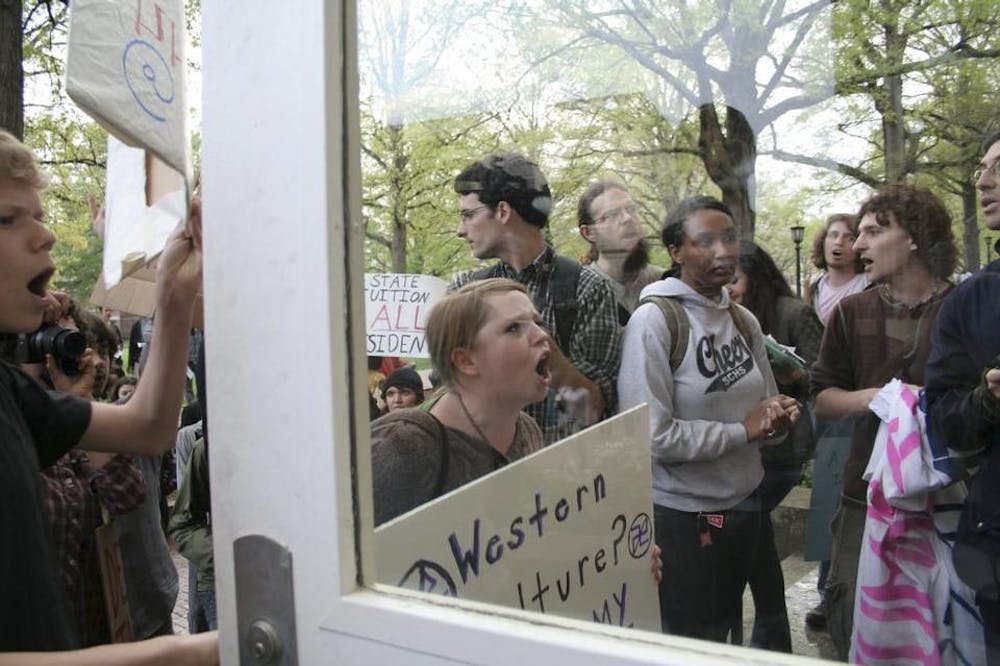In North Carolina, a proposal last year by Lt. Gov. Dan Forest has again become a topic of debate. The Campus Free Expression Act would require disciplinary action for those who interrupt the free expression of others — like the Feb. 1 protests at U.C. Berkeley, where students caused a controversial speaker to cancel his speech on campus.
Joe Cohn, legislative and policy director for the Foundation For Individual Rights in Education, said campus free expression acts have been passed in Virginia, Missouri and Arizona.
Cohn also said FIRE has gotten legislation passed in three states to prohibit schools from having free speech zones, which he said the organization opposes. FIRE’s research shows that one in ten colleges use misleadingly labeled free speech zones to quarantine speech on campuses.
“What that tells me is two things,” he said. “One, that 10 percent of schools using this tactic is a big enough problem that we need to address it. But that 90 percent of schools don’t use free speech zones to stifle speech proves that if the other schools that use that tactic were to eliminate the free speech zones, the sky would not fall.”
FIRE rates colleges and universities on their speech codes. UNC received a green rating, meaning FIRE is not currently aware of threats to students’ free speech rights at the University and its policies nominally protect free speech.
UNC and Duke University are the only schools in North Carolina that received a green rating.
UNC’s current policy permits assemblies and gatherings of university-sponsored, university-affiliated and unaffiliated groups without prior approval in Y-Court, the Pit and in designated major open spaces. It said any group, whether affiliated with the University or not, may distribute pamphlets, written materials, publications and advertisements at any open, exterior campus space.




